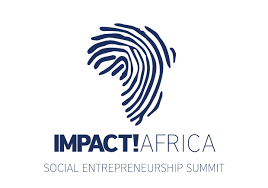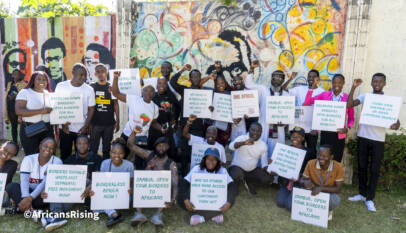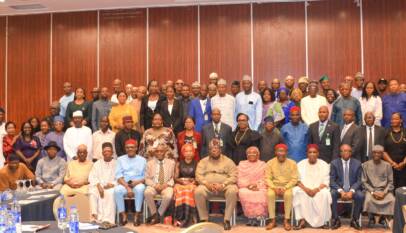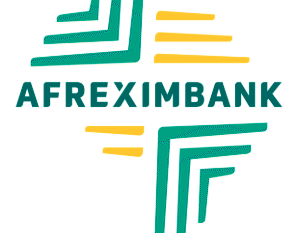INTERVIEW | Impact Africa wants every African to become a changemaker for good – Pape Samb
Pape Samb, executive director of Ashoka Africa, speaks about the forthcoming 3rd Impact! Africa Social Entrepreneurship Summit, one of the largest gatherings of social innovators, changemakers and impact leaders in Africa, holding March in Lagos, Nigeria
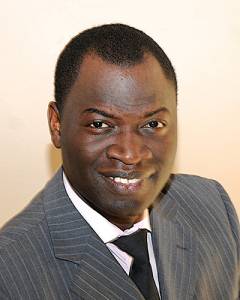
By Adam Alqali
Newspage: Can you help us unpack Ashoka’s Impact Africa initiative?
Samb: Impact Africa has three pillars. The first pillar is the summit which came into being because of our realization that African innovators mostly went out of Africa to showcase their innovations and so they were being recognized elsewhere around the world and consequently their innovations were also being replicated somewhere else around the world – and not around Africa.
This is because unlike business entities, social innovators are not duly recognized by African governments hence there are no legal jurisdictions for social entrepreneurs. Having legal jurisdictions would allow social entrepreneurs whose innovations address crucial societal challenges the opportunity to enjoy tax breaks. To this end, Impact Africa was founded on the premise that African problems should be addressed by African entrepreneurs.
Hence, 22 African and international organizations such as Ashoka, British Council, and African Development Bank (AfDB), decided to come up with the Impact Africa Summit, to annually showcase a minimum of 150 African social innovators who have developed solutions to Africa’s most pressing challenges. These solutions must have been tested and proven to be scalable.
So, the summit fosters learning, exchange of ideas as well as providing the social entrepreneurs the required exposure, visibility, and recognition among African governments and the private sector. This consequently helps them attract the necessary support to replicate their innovations across other African countries and possibly, globally. We invite between 200 and 300 partners from across the globe to participate in the summit so they can learn about African innovations.
This is against the idea of African innovators only exhibiting their innovations at global platforms such as the World Economic Forum (WEF) – which is good for the individual African innovators but does not help address African problems. African problems are similar in nature hence the need to support African innovators to solve these problems. In today’s world, the rate at which problems are being created is much faster than the rate at which solutions to the problems are being found hence we want to create as many African changemakers as possible!
So, the Summit showcases innovations across healthcare, education, agriculture, energy and climate change so that African governments and the private sector will see the value in these innovations and invest in them. We want to see the social sector working with the public and private sectors in Africa. Also, the fact that technology and automation is replacing human jobs calls for systems change, anticipation of emerging trends and preparing for the future. The world is changing at such a rapid pace that the top 10 jobs of the next 10 years are yet to be created.
Moreover, the second pillar of the Impact Africa initiative is the fund; our findings show that those who control funding for innovations in Africa are not Africans. As such while most African innovators are looking for funding in the range of USD5000 to USD250, 000, the venture capitalists are not interested in anything less than between USD500, 000 and USD1 million. This means Africans are being left behind which is further creating inequality in the world.
Therefore, we decided to create a fund that will also serve as a facility for African social innovators to acquire the necessary skills, knowledge and support as well as seed funding and then we will provide them with the kind of loans they need, based on interest rates they can afford. So, the focus of the fund is providing technical assistance for the incubation and acceleration of ideas followed by provision of seed grants and then loans to the innovators.
Finally, the third pillar is the platform which brings together young people onsite to work with ecosystem actors to transform their ideas into actual businesses; this encompasses training, mentorship, access to knowledge, capacity building, grantmaking and investment. So, the platform brings together actors within the investment ecosystem to create impact and facilitate access to finance for young African innovators. Although we receive funding and support from outside of Africa, everything we do is Africa-led, Africa-managed and Africa-oriented.
Newspage: Can you tell us more about the forthcoming 3rd Impact! Africa Social Entrepreneurship Summit holding in Lagos, Nigeria come March, 2022?
Samb: The forthcoming summit is focused on collaborative entrepreneurship for systems change; it would showcase the innovations of young Africans with tested and proven ideas. The innovations we are showcasing cut across varied sectors, namely technology, agriculture, women and youth entrepreneurship. We are primarily interested in what we call changemakers for good i.e people who are not only creating businesses but also solving local problems.
We want to eliminate the ‘Us vs Them’ mentality by ensuring equity in access to opportunities. So, the central focus of the summit is how do we create a collaborative entrepreneurship that ensures every African become a changemaker for good, through showcasing success stories and innovative solutions to inspire governments, private organizations and youths to come together to eliminate the inequality between ‘the haves and have-nots’, from an African perspective.
We believe there are a lot of values the world can learn from Africa, for example, the notions of living as a community, sharing, empathy, caring and collaboration which are values we share as Africans for centuries. What I am saying is that in a capitalist world, there is a tendency to prioritize money as the main currency even when there are other currencies like time, love, care and collaboration that the economic market doesn’t value but we should value because they are important in the African tradition.
Newspage: The Africa Continental Free Trade Area (AfCFTA) is one of the greatest things that happened to post-independence Africa, yet there will not be true continental integration without the inclusion of young people. How crucial is the role of young people in Africa’s integration agenda?
Samb: The integration of Africa into a single entity, where there is free circulation of people, goods and services is really important and necessary, looking at what happened in North America through the creation of the United States of America (USA) and Europe through the creation of the European Union. But certain steps are necessary for integration to happen; it requires a vision along with objectives, defined processes, a strategy as well as the right leadership to bring the vision to life.
In Africa we have a tendency for grand visions and slogans without taking the necessary actions to bring them to reality. For Africa to achieve meaningful integration, we first need to adopt a common language. Currently, only one of the AU’s six official languages is truly an African language i.e Swahili. Across the continent, there are over 3500 languages but only Swahili is recognized as an official language of the continent – the other 5 are all foreign languages.
The fact that we speak different languages amounts to competitive disadvantage. We can for example decide to adopt Swahili as a common language so that subsequent generations of Africans will all speak Swahili as a uniform language. If that happens and all the 1.3 billion African people speak Swahili, we will have a competitive advantage and we will make the world learn Swahili like they made us learn English and other foreign languages.
Second is leadership, what is the average age of our leaders in Africa which is the world’s youngest continent? It is over 60 years. Do you see the irony and contrast? Our leaders do not share the same mindset and perspective as the majority of the people they lead which is a problem. We need to change this reality by encouraging and supporting young people to get into positions of leadership so they can represent the interest of this young continent that is currently being led by old people.
Editor’s note: This interview has been edited for length, clarity and flow.

